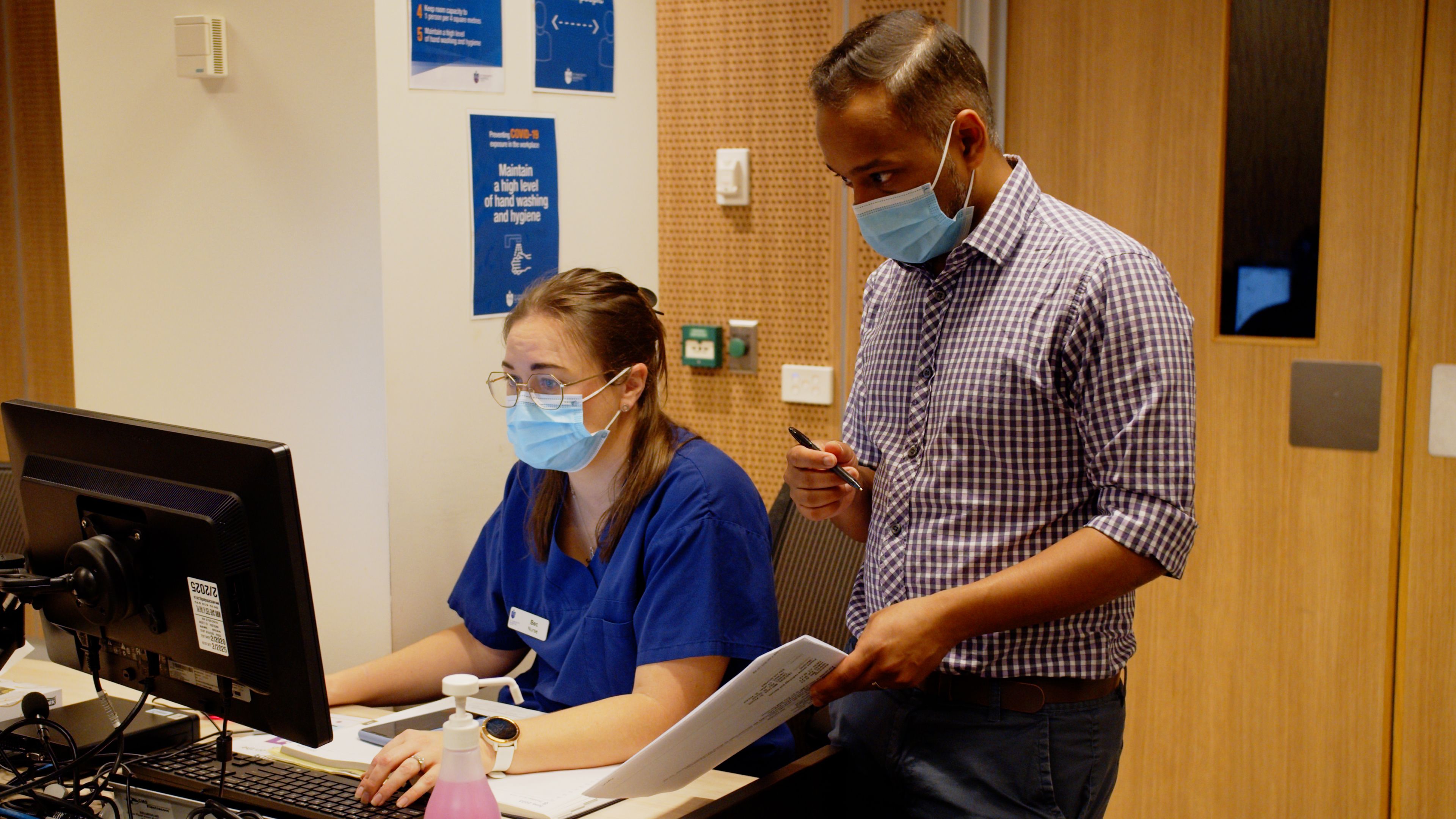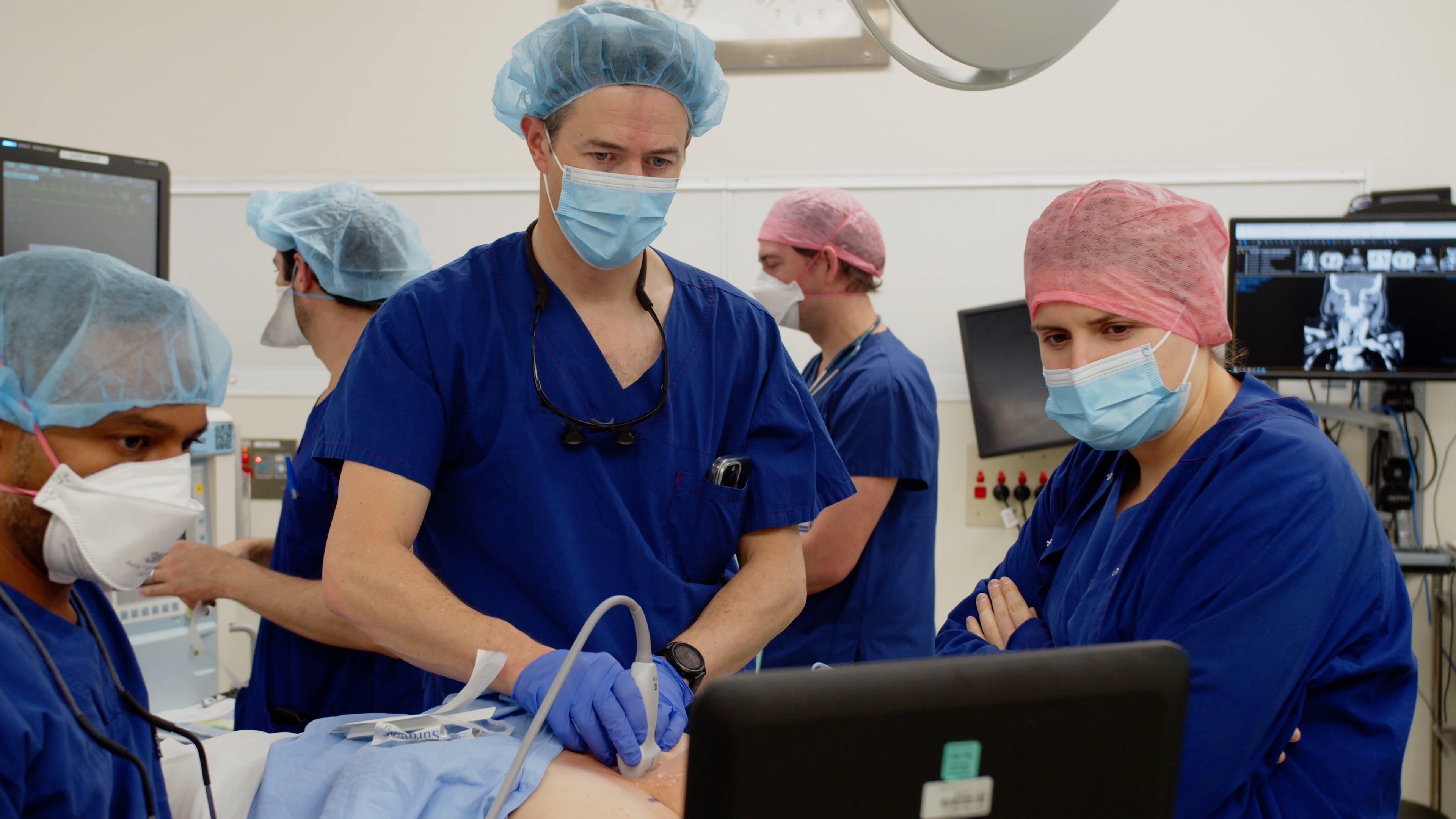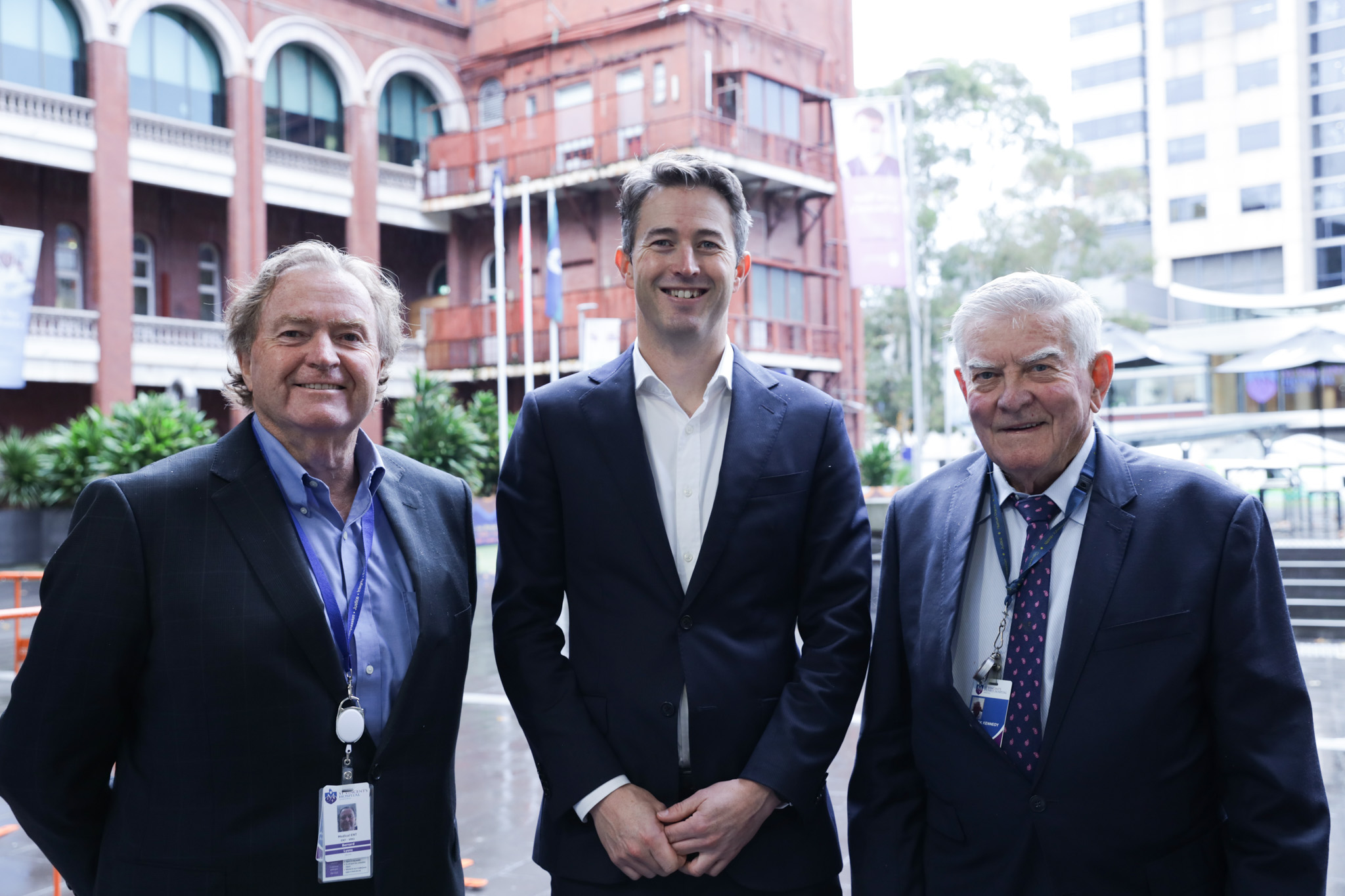Meet the St Vincent’s team renowned for tackling skull base, head and neck tumours
If you live in Melbourne, regional Victoria, Tasmania or southern New South Wales and require surgery on a tumour growing in or near your head, you could be referred to St Vincent’s Hospital Melbourne’s Ear, Nose & Throat (ENT), Head & Neck Unit.
Dr Ben Dixon is a specialist Otolaryngologist and Director of the Head and Neck Unit, where a skilled team has built their reputation on an ability to treat a high number of complex conditions.
“At St Vincent’s, we provide general ENT surgery care for the common things like fixing broken noses, tonsillectomy for tonsilitis, ear problems and sleep apnea, as well as many more complex procedures around the head, neck and skull base,” Dr Dixon said.
“We do these operations weekly at St Vincent’s, which is quite unusual. These are rare cancers and rare tumours, but as a tertiary referral centre, we have built up our reputation, skillset and expertise, over the years to be able to do this on a day-to-day basis.”
Why a ‘multidisciplinary’ approach?
Dr Dixon describes the head, neck and skull base as complex anatomy. Treating tumours, especially when requiring surgery, calls for the attention of health professionals with various areas of expertise.
The skull base, for example, refers to the junction between the brain and the skull, as well as all the facial structures, including the nose, the eye, the ear and the jaw, as well as the tissues at the bottom of the skull.
“In order to treat patients with these kinds of more complex disorders, we need a big team,” Dr Dixon said.
“That includes not only surgeons but radiation oncology, radiologists and pathologists who are all at the multidisciplinary meeting that we run every week. This is where we go through the needs of the patients and what they will need to get the best clinical outcome.”
“We have speech pathologists, dieticians and physiotherapists that work with the complex needs of our patients as well.”
.JPG)
Pictured: Some of the ENT, Head & Neck cohort at St Vincent's.
In theatre, the surgeons may be joined by colleagues from plastic surgery, neurosurgery, and maxillofacial surgery, among others.
Neurosurgery is often involved because of cases where the tumour affects the brain.
“Sometimes that is for access to a tumour that is within the brain entirely, but we access it through the nose or via the ear or through a number of other routes,” Dr Dixon said.
“Or it could be a tumour that is within our area – the nose, the eye, the ear – that is extending into the brain, and we have their involvement for that side of things as well.”
The multidisciplinary approach is supplemented by a support network of nursing staff, including the nurses on the ward, in the clinic and the operating theatre, and in particular, a nurse coordinator who helps coordinate the care of complex patients.
Treating the patient holistically
Rebecca Barnett is a Head & Neck Cancer Nurse Coordinator at St Vincent’s. This role sees Rebecca working with patients from their referral to the unit, through to following a cancer diagnosis, a patient’s journey to surgery, and their post-operative treatments and follow-ups.
With the Unit taking referrals from patients living outside of Melbourne, and even Victoria, Rebecca’s role as a patient’s point of contact and support becomes even more crucial.
“I think the hospital system can be tough to navigate for people in this sort of distressed situation,” she said.

Pictured: Nurse Coordinator Rebecca Barnett (left) and ENT Registrar Dr Nuwan Dharmawardana (right) during the weekly multidisciplinary meeting.
“They’ve been newly diagnosed; they don’t know what the next step is, so our role is to be there.”
“I give them my mobile phone number, and I tell them, ‘If you have any questions about the hospital, I’ve been here for 13 years, and I can contact whoever you need. I’m your person and if you have any issues, call me.”
When Rebecca introduces herself to a patient, she asks questions to make an initial assessment of their day-to-day health issues – like eating, drinking and weight loss – but also of their general life circumstances, for example their family and social situation.
This gives her the insight to raise these considerations at the multidisciplinary meetings that discuss patient treatments and outcomes.
“It means we are getting a holistic perspective. I know, for example, if a patient is socially isolated in the country, they might have trouble getting to radiation therapy,” she said.
Four decades of history
From the 1970s and 1980s to today, much has changed to make these surgeries a reality.
“It has to be remembered that in the 70s and 80s it was very difficult to get scans,” Dr Dixon said.
“Even CT scans were very early on, and there were no MRIs, no PET Scans, all these modalities we use daily to make good decisions and good plans for our patients – they didn’t have that back then.”

Pictured: ENT, Head & Neck Unit Director Dr Ben Dixon and members of his team preparing to operate on a patient.
Over the past four decades, imaging systems, improved pathology and data, developed surgical expertise and better equipment have made head, neck and skull base tumour treatment much less invasive.
At St Vincent’s, that progress has been guided by Dr Dixon’s predecessors in the ENT, Head & Neck department.
“Jack Kennedy was a previous Head of Unit and started at St Vincent’s during the 70s. He really built up the service here,” Dr Dixon said.

Pictured: Dr Bernard Lyons (left), Dr Ben Dixon (middle) and Dr Jack Kennedy (right).
Dr Kennedy trained in the United States and returned with the contacts and expertise that allowed him to bring new techniques and develop the capacity here for more advanced surgeries to be done on a day-to-day basis.
“He built a reputation for St Vincent’s as a place where tumours that wouldn’t have been operated on in the past could be safely treated,” Dr Dixon said.
“The immediate past Head of Unit, Bernard Lyons, raised the bar even further, operating on things previously thought inoperable while making them very safe and routine.
“It is a great privilege to take over from these surgeons who have paved the way for a wonderful multidisciplinary cancer service."